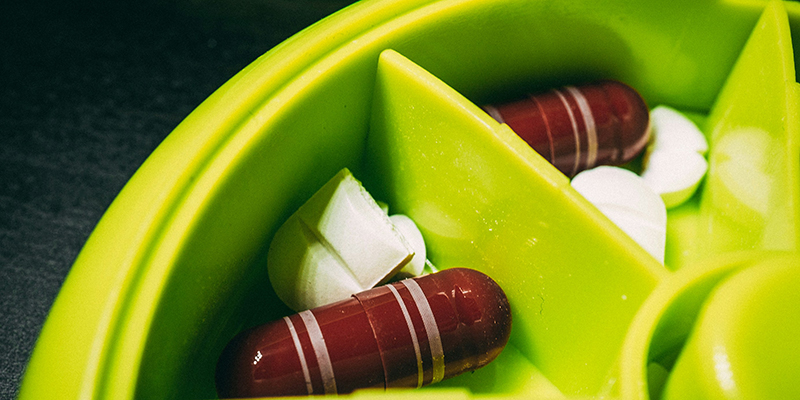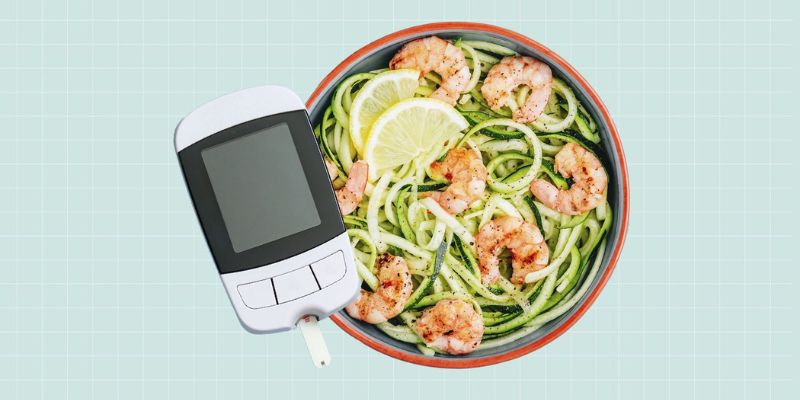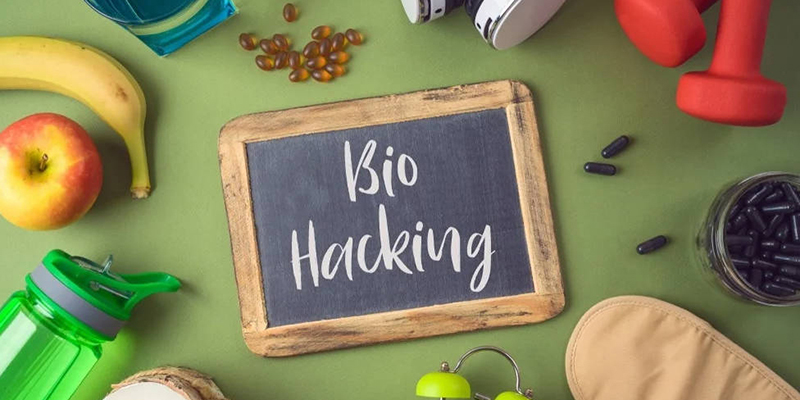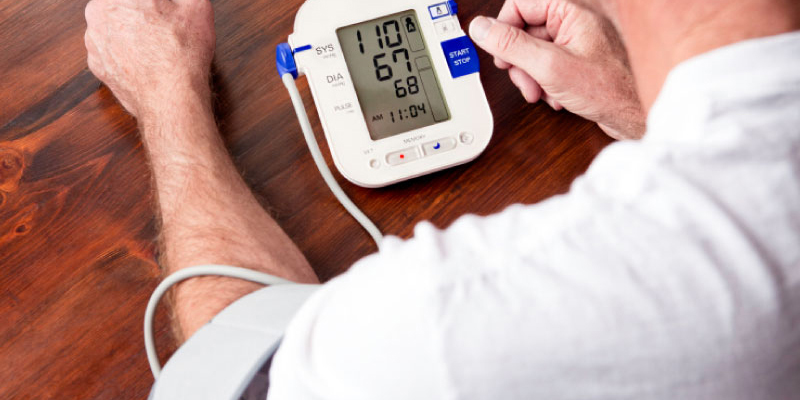Top 5 Proven Ways To Lower Blood Sugar Safely
Living with high blood sugar can be a daily challenge. You might feel like you're always on edge, worrying about what you eat and how it'll affect your health. It's frustrating when your blood sugar levels seem to have a mind of their own.
You're not alone in this struggle. Many people are in the same boat, unsure how to steer towards better health. The constant worry about potential complications like diabetes or heart disease can be exhausting.
But here's the good news: you don't have to feel helpless. There are natural, safe ways to get your blood sugar under control. There is no need for drastic measures or risky treatments.
In this article, we'll explore five proven methods to safely lower your blood sugar. These aren't quick fixes or fad diets. They're reliable strategies backed by science. Let's get started.
Understanding The Impact Of Blood Sugar Spikes On Health
Your body relies on a delicate balance of blood sugar to function properly. When this balance is thrown off, it can wreak havoc on your health. High blood sugar doesn't just affect people with diabetes - it can cause problems for anyone.
Uncontrolled blood sugar can damage your blood vessels over time. This puts you at risk of severe issues like heart disease, kidney problems, and vision loss. It's not something to take lightly.
If your blood sugar is too high, you might notice some warning signs. Feeling extra thirsty, needing to pee more often, or having blurry vision are common symptoms. Some people also feel exhausted or notice slow-healing wounds.
Catching these signs early is critical. The sooner you address high blood sugar, the better your chance of avoiding long-term health problems. Don't ignore what your body is telling you.

Here are some ways to lower blood sugar safely:
Exercise Regularly
Getting moving is one of the best things you can do for your blood sugar. Exercise is like a natural blood sugar regulator. It helps your body use insulin more effectively, which means better blood sugar control.
When you exercise, your muscles need more energy. They start pulling glucose from your blood to use as fuel. This helps lower your blood sugar levels naturally.
You don't need to run marathons to see benefits. Even a brisk 30-minute walk can make a difference. Aim for activities that get your heart pumping and make you breathe a little more complex.
Mixing up your workouts can be even more effective. Try combining cardio exercises like walking or cycling with strength training. Lifting weights or resistance bands can help build muscle, which is excellent for long-term blood sugar control.
Another powerful tool is high-intensity interval training (HIIT). These short bursts of intense exercise followed by rest periods boost your body's ability to manage blood sugar.
Remember, consistency is critical. Regular exercise, even in small amounts, is better than occasional intense workouts. Find activities you enjoy, and you'll likely stick with them.
Eat Fiber-Rich Foods

Fibre is your secret weapon in the fight against high blood sugar. It's like a speed bump for sugar absorption. When you eat fibre-rich foods, they slow down how quickly sugar enters your bloodstream.
This slower release helps prevent sudden spikes in blood sugar. It gives your body time to process the sugar more evenly. Plus, fibre keeps you feeling full longer, which can help with weight management.
So, what foods should you focus on? Vegetables are a great place to start. Leafy greens, broccoli, and Brussels sprouts are all excellent choices. They're low in calories but high in fibre and nutrients.
Whole grains are another fibre powerhouse. Think brown rice, quinoa, and oatmeal. These complex carbs provide steady energy without the blood sugar rollercoaster.
Remember legumes. Beans, lentils, and chickpeas are high in fibre and packed with protein. They're a great addition to salads, soups, or a side dish.
Berries, apples, and pears are also good options. Just remember to eat the whole fruit rather than drink juice. The fibre in whole fruits helps balance out their natural sugars.
Stay Hydrated
Water is essential for every body part, including blood sugar management. When you're well-hydrated, your kidneys can do their job more effectively. They work to flush out excess sugar through your urine.
Drinking enough water can also help prevent dehydration. When you're dehydrated, your blood sugar becomes more concentrated. This can lead to higher blood sugar readings.
Aim to drink water throughout the day. Don't wait until you feel thirsty - that's often a sign you're already slightly dehydrated. Keep a water bottle handy and sip regularly.
Herbal teas can be a great alternative if you get bored with plain water. They add flavour without adding sugar or calories. Green tea, in particular, may have additional benefits for blood sugar control.
Be cautious with other beverages, though. Sugary drinks like soda or fruit juices can cause rapid spikes in blood sugar. Even some "healthy" drinks like smoothies can be high in natural sugars.
Monitor Carbohydrate Intake

Carbohydrates have the most significant impact on your blood sugar levels. They break down into glucose, which directly affects your blood sugar. This doesn't mean you must cut out all carbs, but being mindful of your intake can make a big difference.
Start by learning which foods are high in carbs. Bread, pasta, rice, and starchy vegetables like potatoes are common culprits. Sugary foods and drinks are also high in carbs.
Not all carbs are created equal, though. The glycemic index (GI) is a helpful tool. It measures how quickly foods raise blood sugar levels. Low-GI foods are better for maintaining steady blood sugar.
When possible, choose whole grains over refined ones. Brown rice, whole wheat bread, and quinoa have lower GIs than their white counterparts. They also provide more fibre and nutrients.
Pairing carbs with protein or healthy fats can help slow down sugar absorption. For example, add some nuts or cheese on the side if you're having fruit. This combination can help prevent sharp blood sugar spikes.
Remember, portion size matters too. Even healthy carbs can raise blood sugar if you overeat at once. Use measuring tools or visual guides to help control your portions.
Manage Stress Levels

Stress isn't just bad for your mental health - it can affect your blood sugar, too. When you're stressed, your body releases hormones like cortisol and adrenaline. These hormones can cause your blood sugar to rise.
Learning to manage stress is crucial for blood sugar control. It's not about eliminating stress - that's not realistic. Instead, focus on finding healthy ways to cope with stress.
Meditation is a powerful tool for stress management. Even a few minutes of quiet reflection each day can make a difference. Many apps and online resources can help you get started.
Deep breathing exercises are another simple but effective technique. When you feel stressed, take a moment to focus on your breath. Slow, deep breaths can help calm your mind and body.
Physical activities like yoga combine the benefits of exercise with stress relief. Gentle movements and focus on breathing can help reduce stress hormones.
Remember to underestimate the power of a good night's sleep. Lack of sleep can increase stress and affect blood sugar levels. Aim for 7-9 hours of quality sleep each night.
Your Turn: Share Your Journey
These aren't quick fixes but lifestyle changes that can make a real difference. Start small. Pick one or two methods that are most doable for you right now. As you get comfortable, gradually incorporate the others.
Remember, everyone's body is unique. What works best for you might be a combination of these strategies. It's worth talking to your doctor or a nutritionist. They can help you create a plan tailored to your needs and health goals.
Keep going if you see immediate results. Lasting change takes time. Be patient with yourself and celebrate the small victories along the way.
And hey, if you found this information helpful, stick around! Follow our blog for more tips on living your healthiest life. We're in this together, and there's always more to learn about taking care of ourselves.
Remember, small changes can lead to significant results. You've got this!





